New tool to test green claims
Thanks to funding and support from Innovate UK, the first phase of the development of our new online tool, designed to help people gain more understanding and knowledge around greenwashing, is complete.
08 April, 2025
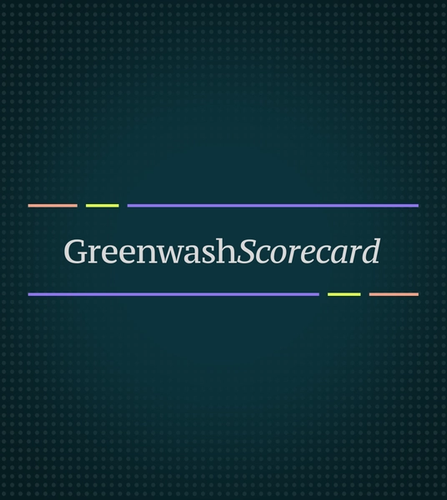
James George, Founder of Provocative Human Ltd, an environmental and strategy consultancy, has supported the project from the outset, and he shares his thoughts on its significance.
Firstly James, tell us about greenwashing and why it’s an issue?
Greenwashing happens when businesses present products, services or practices as greener than they actually are, often by overstating environmental benefits or leaving out key information from their 'green' campaigns. My belief is the vast majority of people who get caught greenwashing don't do so deliberately but there’s significant legislation, so it's really important to get it right.
How easy is it to get it wrong?
The good news around this topic is there’s largely a unified approach across different markets. There’s some very clear areas around language, colours and images that enhance the authenticity of your product - they are very straightforward. However, there can be some subjectivity to interpretation, which is a big challenge in this space. What’s worth noting is most of the cases that get reported are from competitors, not by the public. Your campaign will be looked at and your competitors will ask "how have they managed to get away with language like that"?
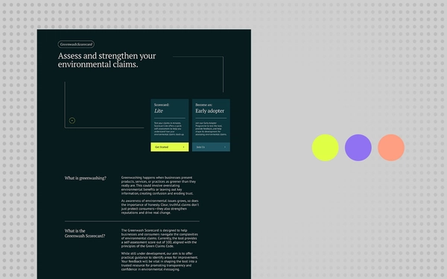
Tell us more about the legislation.
This is driven by the European Union, and the screw will turn again in January next year, so businesses really must act to ensure they follow the protocol. In the UK, the Green Claims Code provides guidelines to ensure environmental claims are accurate and trustworthy. The new tool we’ve been developing is very much based on this code. The Competition Markets Authority (CMA) and Advertising Standards Agency (ASA) in the UK are very aligned when it comes to greenwashing.
How can businesses be penalised?
If you're found in breach of the current guidelines, as a business in the UK, the fine could be as large as 10% of your turnover. In the EU, they can hit EU10 million. In recent years, the CMA and ASA have started to bear their teeth very significantly, either as a cancellation of a campaign, removal of a particular advert, and there have been some very serious examples of financial penalties handed out. Brand equity and reputation is also an issue. Trust is everything and in a very compact landscape, you don't want to be pulling the wool over the eyes of your consumers, especially when there is a greater level of awareness and transparency out there with some demographics.
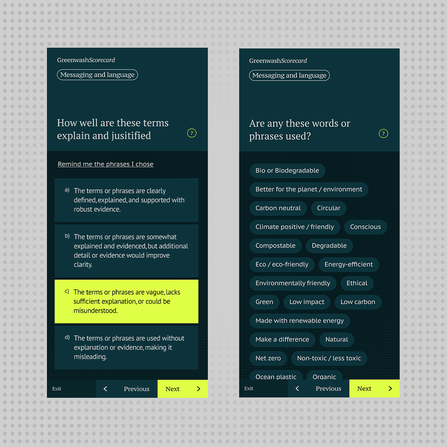
What is this new tool designed to do?
The real challenge with greenwashing is it applies to every piece of communication, whether that's written, visual, audio, film and so on. That’s millions of campaigns about the various products and services on the market that are subject to this legislation. For the most part, it is mandraulic - checked by individuals - but the conversations we've been having is it's really hard to put a process in place that captures everything and ensures stuff doesn't get through. This is where the GreenwashScorecard concept came from. How can we automate that process and how can we at least allow those limited human resources to be directed to the projects that are most risky or potentially most detrimental from a business standpoint.
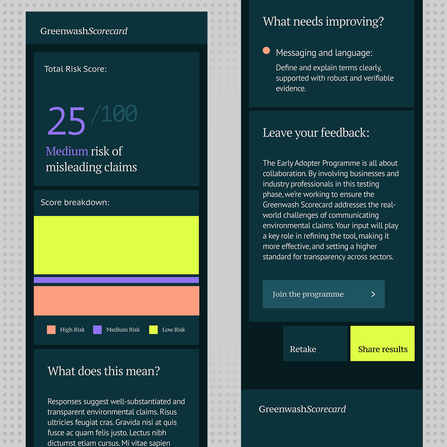
How does the GreenwashScorecard work?
Put simply, the GreenwashScorecard aims to help businesses and consumers navigate the complexities of environmental claims. Irrespective of where you sit on the knowledge ladder around greenwashing, it will enable you to shine a light on areas of messaging that might require more attention. It can look at particular words, images, and the context of your campaigns and prompt you around anything that needs a closer look. It’s designed to be simple and is meant to be friendly and non-confrontational.
What happens once you have used the GreenwashScorecard to test a claim?
The scorecard provides a self-assessment score out of 100, aligned with the principles of the Green Claims Code. You receive a report at the end, highlighting the areas you need to focus and some points to follow on. You can download those reports, potentially using them as a training mechanism over time, reviewing progress and proportioning more energy into areas that keep coming up.
How does this GreenwashScorecard differ from others that are available?
The involvement of lots of different brands - all connections through Products of Change - has been really important in the development of this tool. We’re not just doing it because we want to do it, we're doing it because there’s an opportunity and we can help solve a problem. By engaging those brands early and building specifically into their needs, they’ve been able to give us critical feedback, which we’ve asked for, and that has ensured we’ve not been working inside our own echo chamber.
What’s the next step for the GreenwashScorecard?
This project has been made possible with funding and support from Innovate UK, the UK's innovation agency. Innovate UK drives cutting-edge projects that address key challenges, and we're proud to have their backing in developing the GreenwashScorecard.
Now we have completed the first phase of development, we're planning for phase two, where we hope to refine the tool further, ready to take it to market.
Watch this space.
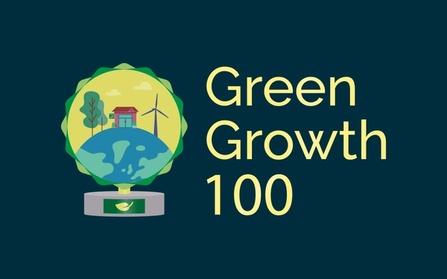
NOSY named in the UK's Green Growth 100
NOSY has been recognised as one of the UK's small businesses leading the way in sustainability-led growth.
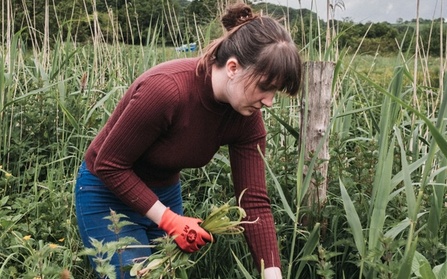
Prosperity over profit
We live in a world where 'growth at all costs' doesn't align with a sustainable future. Instead, we look at the impact we have on the prosperity of people as a key benchmark of our success.

Building brands with clarity and purpose
Over nearly 20 years, Scott Bennett has helped shape brands that stand for something. As NOSY’s Creative Director, he shares how strong brands are built.
Let's work together
Telephone
+44 (0)1983 632997Office
Top Floor, 8 Gray's Walk, Newport, England, PO30 1TD